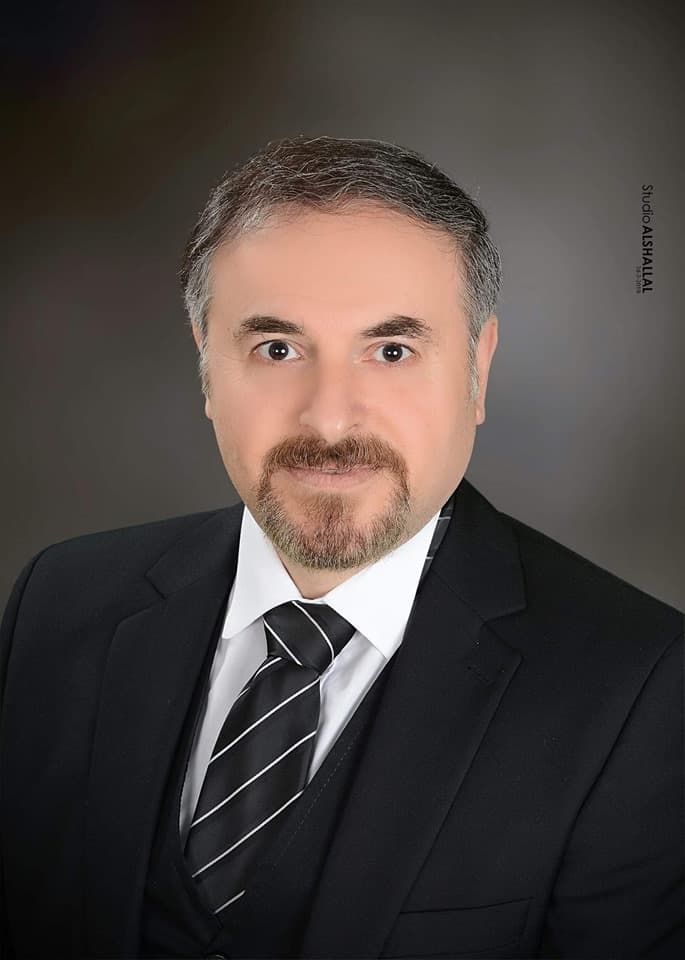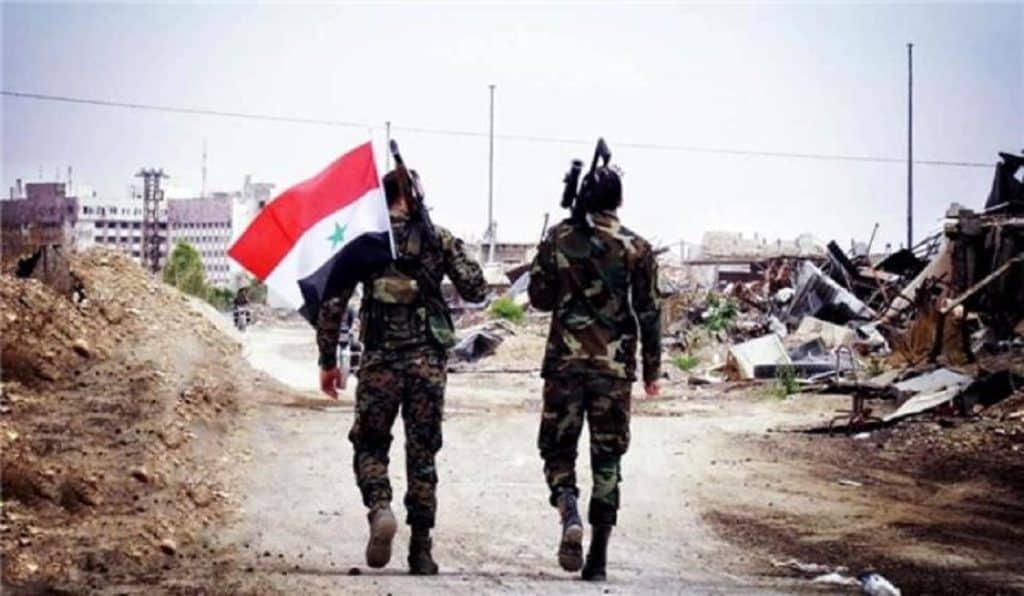Interview with Zoulfikar Abboud
The international community seems to be concluding that the war in Syria is nearing the end. As the foreign affairs agencies of many countries are trying to restore diplomatic relations with official Damascus, the Syrian Arab Army is actively conducting military operations to liberate the province of Idlib, which has become the last bastion of terrorism in Syria. At the same time, a number of countries of the international coalition are still not interested in resolving the Syrian crisis.
Especially for World Geostrategic Insights, we talked about this with Zoulfikar Abboud, doctor of economic sciences and professor at the Faculty of International Relations of the University of Tartous, Syria.

1. On September 19, 2019, Russia and China vetoed a UN Security Council resolution calling for a cessation of hostilities in the Syrian province of Idlib. Belgium was the formal initiator of the resolution, but experts were unanimous that Washington could be the real beneficiary of the resolution. Having blocked the resolution, Moscow and Beijing unequivocally informed the international community that they intend to fight international terrorism until the victorious finale. In addition, Russia is not inclined to limit its agreements with Turkey and Iran regarding participation in the Syrian theater of military operations, as a result of which it will continue to strike at terrorist positions in Idlib, despite criticism from Western partners. Does the fact of consideration of the “Belgian” resolution in the UN Security Council indicate that the international community has an alternative scenario for solving the Idlib problem? Can it be argued that Washington and Brussels are not interested in Moscow, Ankara and Tehran continuing the military operation to eliminate the terrorist threat emanating from the Hayyat Tahrir al-Sham movement and the groups joining it?
– The duty of the Syrian Arab Army is to liberate Idlib province from terrorists and those countries that are interested in fomenting war in Syria. However, the United States and its allies do not share the position of official Damascus and are trying to do everything possible so that Syria continues to remain a zone of conflict for an indefinite period of time. Thus, the White House administration intends to deplete the forces of the SAA and postpone its offensive in the east of the Euphrates, where there are large oil and gas deposits that are controlled by Kurdish armed forces. Therefore, Washington creates obstacles for Russia, which intends to provide military support to the Syrian Arab Army. To this end, Western countries have developed an alternative plan to solve the Idlib problem. This plan is to oust the Russian and Syrian military from there and allow the terrorists to strengthen their positions. Of course, Moscow and Damascus cannot afford to implement such a plan for the reason that taking into account the positions of terrorist groups in Idlib will lead to an escalation of the conflict.
2. As a result of the fact that Tel Aviv was repeatedly noticed for striking the territory of Syria contrary to the agreements reached between Russia and Israel, Moscow recently allowed Damascus to use the S-300 air defense systems in the event of a threat from Israel, provided that Syria will be responsible for such actions. Does this mean that under the threat of a retaliatory strike, Israeli attacks on Syrian territory can be minimized? It is worth noting that, not so long ago, Moscow preferred not to notice the Israeli attacks in Syria, guided by unspoken agreements with Tel Aviv. Why now has the position of Moscow changed? How likely is it that relations between Russia and Israel will deteriorate after permission to bring down Israeli military aircraft in the sky over Syria? Beirut, who was also attacked by Israel, may ask the government of Bashar al-Assad to use the S-300 against Israeli aircraft in the sky over Lebanese territory. In turn, Damascus, guided by friendly relations with Lebanon, can satisfy such a request. In this regard, is it to be expected that Lebanon can indeed create a certain defensive alliance with Syria against Israel? How likely is it that Syrian S-300 systems will be used against Israeli aircraft at all?
– Russia provided the Syrian Arab Army with an S-300 air defense system after a series of attacks on Russian military aircraft. This has strengthened Syria’s defense against Israeli attacks, but so far the Syrian army has not used this system for many reasons. Firstly, so as not to affect relations between Russia and Israel. Secondly, because the Syrian army has similar air defense systems. Thirdly, in order not to reveal the location of the air defense elements. Fourth, because these weapons can only be used if Israel or any other country attacks Syria. However, coordination between Syria and Russia is at a high level to protect Syria from attacks from Israel. As for Lebanon, it is best for Lebanon to enter into an agreement with the Syrian government to protect its lands, which are under constant Israeli threats and, of course, there are Lebanese lands that are still occupied by Israel. For this reason, Damascus will gladly satisfy Beirut’s request to deploy Syrian air defense systems to protect Lebanese territory. In addition, the government of Bashar al-Assad is ready to enter into a defensive alliance with Lebanon if official Beirut takes such an initiative.
3. On September 16, 2019, the Syrian Foreign Ministry appealed to the United Nations with a request to recognize the “SDF” (“Syrian Democratic Forces”), consisting mainly of Kurds, as a terrorist organization. In turn, Turkey, pursuing the goal of combating Kurdish armed groups, praised the initiative of official Damascus. Does this mean that the government of Bashar al-Assad made a deal with Ankara regarding the announcement of the “SDF” is actually “outlawed”, which indicates Turkey’s intention to launch military operations against the “SDF” in Syria in the near future?
– Turkey is trying to make a “barter deal” between the province of Idlib and the eastern part of the Euphrates, which means that the Turkish army can enter this area and allow the Syrian army to begin a new phase of the offensive operation in Idlib. However, Damascus and Moscow refused this, because they understand that if the Turkish army enters the eastern part of the Euphrates, there will be many killings of the Syrian Kurds who are currently negotiating with the Syrian government to reach an agreement on oil and gas fields. To prevent the Turkish army, which is preparing a long battle in the area, there are other balances, such as the American military presence and the possibility of the Bedouin tribes rebelling against foreign intervention in Syria.
4. On September 14, 2019, Syrian President Bashar al-Assad granted amnesty to all Syrian citizens in prison. At the same time, the death sentences imposed on particularly serious crimes were commuted to life sentences, while on other crimes the terms of imprisonment were significantly reduced. Does this amnesty apply to militants of the Islamic State and other terrorist groups? Could this amnesty be the reason for the international accusation of Syrian President Bashar al-Assad of helping terrorists avoid fair punishment for crimes committed?
– The decree on amnesty, signed by Syrian President Bashar al-Assad, excludes persons accused of terrorism and participation in illegal armed groups. The amnesty is aimed at encouraging the militants to lay down their arms and transfer them to the Syrian army. This is necessary in order to resolve the situation and deprive the terrorist organizations operating in Syria of the opportunity to recruit new militants. Therefore, the decree on amnesty will be a good step towards national reconciliation between Syrian citizens and will pave the way for a political solution to the Syrian conflict. Moreover, it does not matter what they think in the international arena. More importantly, amnesty can contribute to peace on Syrian soil.
Image Source: syria-scope.com







